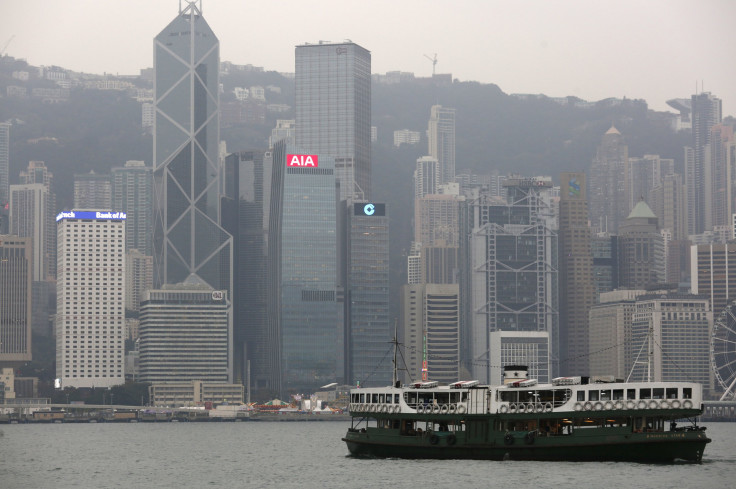China - US Relations: How Trump Is Handling The Hong Kong Crisis Amid A Trade War

President Trump said Friday that he is ending policy exemptions that treat Hong Kong as a separate entity from mainland China but said he would not cancel the “Phase One” U.S-China trade deal. The move comes as the Chinese government pushes a new security law, with critics claiming the legislation could undermine Hong Kong’s autonomy from the mainland.
“I am directing my administration to begin the process of eliminating policy exemptions that give Hong Kong different and special treatment,” Trump said at the White House Rose Garden.
“My announcement today will affect the full range of agreements that we have with Hong Kong, from our extradition treaty, to our export controls and technologies.
“We will take action to revoke Hong Kong’s preferential treatment as a separate customs and travel territory from the rest of China.”
The new security law would criminalize any act of secession, subversion and terrorism in Hong Kong. The legislation criminalizes activities by foreign forces that interfere in Hong Kong’s affairs and allows China to set up its own institutions in Hong Kong responsible for security in the city.
Currently, Hong Kong is a global financial center, and enjoys special treatment in international trade with the United States. Trump’s decision to remove policy exemptions could cause Hong Kong’s status as a financial hub to decline.
Ian Bremmer, the founder and president of the Eurasia Group geopolitical risk advisory firm, told Bloomberg that removing Hong Kong’s special trade status “will dramatically affect U.S. companies” operating in the territory.
Hong Kong was handed to China from British control in 1997, under the “one-country, two systems” principle, allowing the territory to have a separate administrative and economic system from the rest of China. Trump has said the new security law undermines the 1984 agreement and called it a “tragedy.”
Hong Kong Chief Executive Carrie Lam has said the security law does not affect the “legitimate rights and freedoms” of Hong Kong citizens. Chinese state-run media has characterized the legislation as "necessary to protect the rule of the Communist Party.”
Hong Kong Security Minister John Lee told reporters Saturday that Hong Kong would move forward with the law, despite Trump’s decision.
"I don't think they will succeed in using any means to threaten the [Hong Kong] government, because we believe what we are doing is right," Lee said.
Trump’s announcement received a mixed response from prominent U.S. lawmakers.
“As the protests in Hong Kong escalated last year: President Trump stood with President Xi and said he would look the other way on China's abuses,” Sen. Chuck Schumer, D-N.Y, posted on Twitter. “Now President Trump will be remembered as the president who lost Hong Kong.”
Sen. Marco Rubio, R-Fla., praised Trump’s decision.
“For years, the Chinese government and Communist Party have abandoned their commitment established under the Sino-British Joint Declaration to guarantee Hong Kong’s autonomy and freedom,” Rubio said in a statement. “I applaud the Trump administration for taking this difficult but necessary step to protect American interests and pressure Beijing to honor its commitment to Hong Kongers and their freedoms.
U.S.-China relations have been tense after the Trump administration slapped tariffs on Chinese goods in 2018, starting a trade war between Washington and Beijing. China retaliated with tariffs that have devastated the U.S. farm industry.
In January, the U.S. and China agreed to a “Phase One” trade deal, with Beijing buying $200 billion in U.S. agricultural and other goods over the next two years. In exchange, the U.S. would suspend planned tariff increases on Beijing. There have been hints of a shift in policy, as Trump has blamed China for the ongoing coronavirus pandemic.
© Copyright IBTimes 2024. All rights reserved.



















